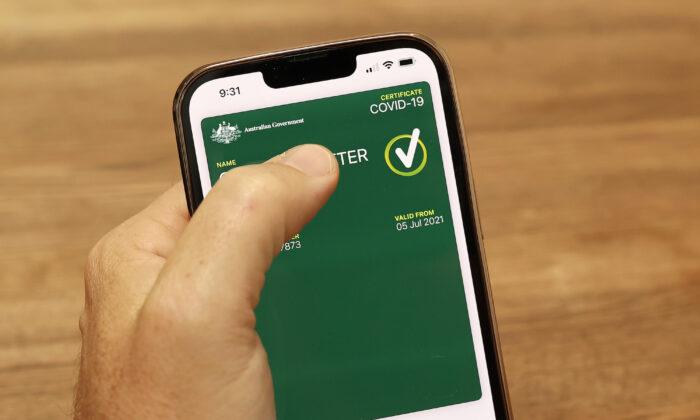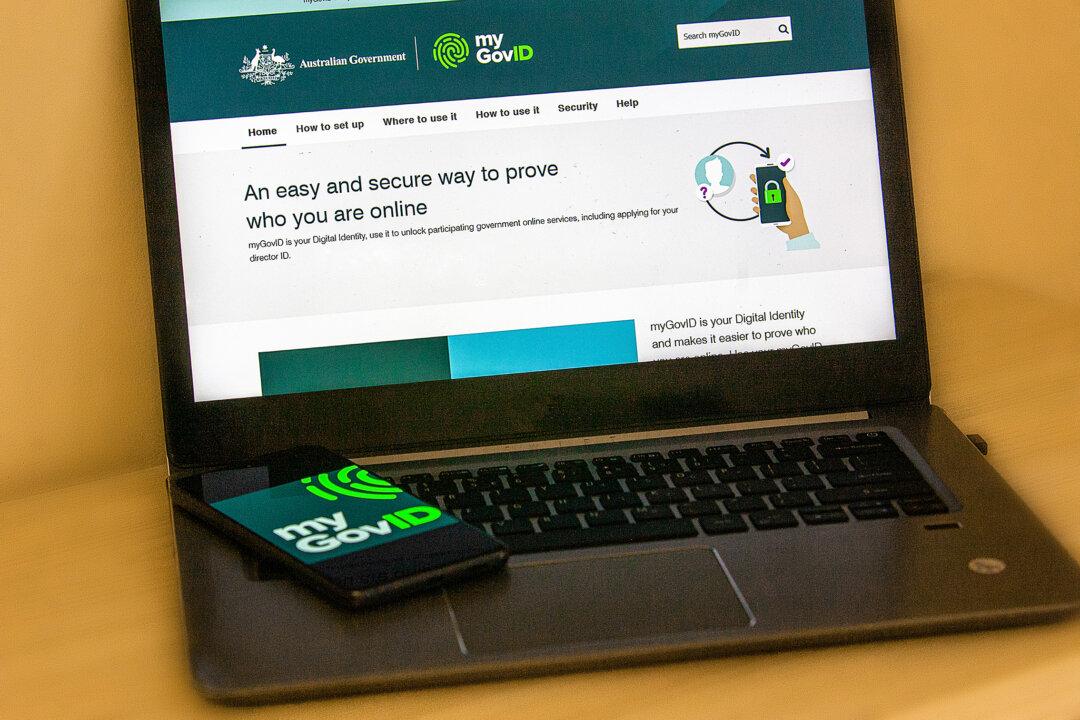Fears of a social credit system in Australia have been relayed by political figures during multiple rallies against the digital ID on the weekend.
Events in Sydney, Melbourne, and Brisbane on May 5 were attended by thousands who opposed the impending national digital ID legislation.
The bill establishes a legislative framework for Australians to start using the new program that can help with identity verification with both government and businesses. It will work in conjunction with the MyGov platform that already links to government services like Centrelink, Medicare, and the Australian Tax Office.
A ‘Social Credit’ System
During a speech in Sydney, New South Wales state Libertarian Party MP John Ruddick said the national ID was akin to a Beijing-style “social credit” system, and that it would not remain voluntary for long.“And the truth is, that they have set up a turn key operation so they can have a Beijing style social credit system at the tip of a hat. And they are telling us, yeah we could do that but trust us, we won’t.”
The Libertarian parliamentarian warned that a future crisis could cause the shift.
“What will happen is, maybe for 10 years, maybe for 20 years it will all be fine, we won’t even think about it, and we’ve got this digital ID.
“And then there will be a crisis, an unprecedented crisis ... and then they'll say, look, this is an unprecedented crisis in the history of the world, we need these emergency temporary powers to bring in a social credit system. That’s what will happen,” he added.
Digital ID to Work in Tandem With Misinformation Bill, Digital Currency: Senator
Meanwhile, One Nation Senator Malcolm Roberts speaking in Queensland, also raised fears of a social credit system.In Mr. Roberts’ view, the digital ID bill was linking to several other programs and laws.
“The good news is they tell us it’s voluntary. Just like the COVID vaccine system. You just won’t be able to feed your kids if you don’t get it. You won’t be able to access government services, funds, travel, education ...”
The One Nation Senator, who voted against the legislation in the Senate, said the digital ID will allow the government to aggregate all data in one place and “sell it.”
“Now MyGov already links driver’s licences, passports, Medicare cards, [and] vaccination records. And now if it passes through the House of Representatives, if it passes, the digital ID will link all government data related to each person in this country,” he said.
“No privacy whatsoever. 350,000 federal public servants can see everything about you and me. Everything. And it will enable them to withhold services if you don’t comply. This is like a totalitarian regime.”
Opening a Bank Account Could be Impacted: Senator
One issue discovered by centre-right Liberal Senator Alex Antic was how individuals could struggle to open bank accounts.The senator pointed to section 74 of the legislation, which states that, “Creating and using a digital ID is voluntary.”
However, under section 74 (2), a bank is not breaking the law if they require a digital identity for their online service, because customers can still go to bank branches.
Mr. Antic also noted the digital ID regulator is able to grant an exemption to the voluntary nature of the legislation “if the digital ID regulator is satisfied that it is appropriate to do so.”
Safe and Voluntary: Senator Katy Gallagher
Labor’s Finance Minister Katy Gallagher has reassured citizens that digital ID is safe and voluntary.“Digital ID makes it safer and easier for Australians to prove who they are online,” she said in a statement on March 27.
“Australians will be sharing less personal information, which is held by fewer organisations, that are subject to stronger regulation—reducing the chance of identity theft online.”







